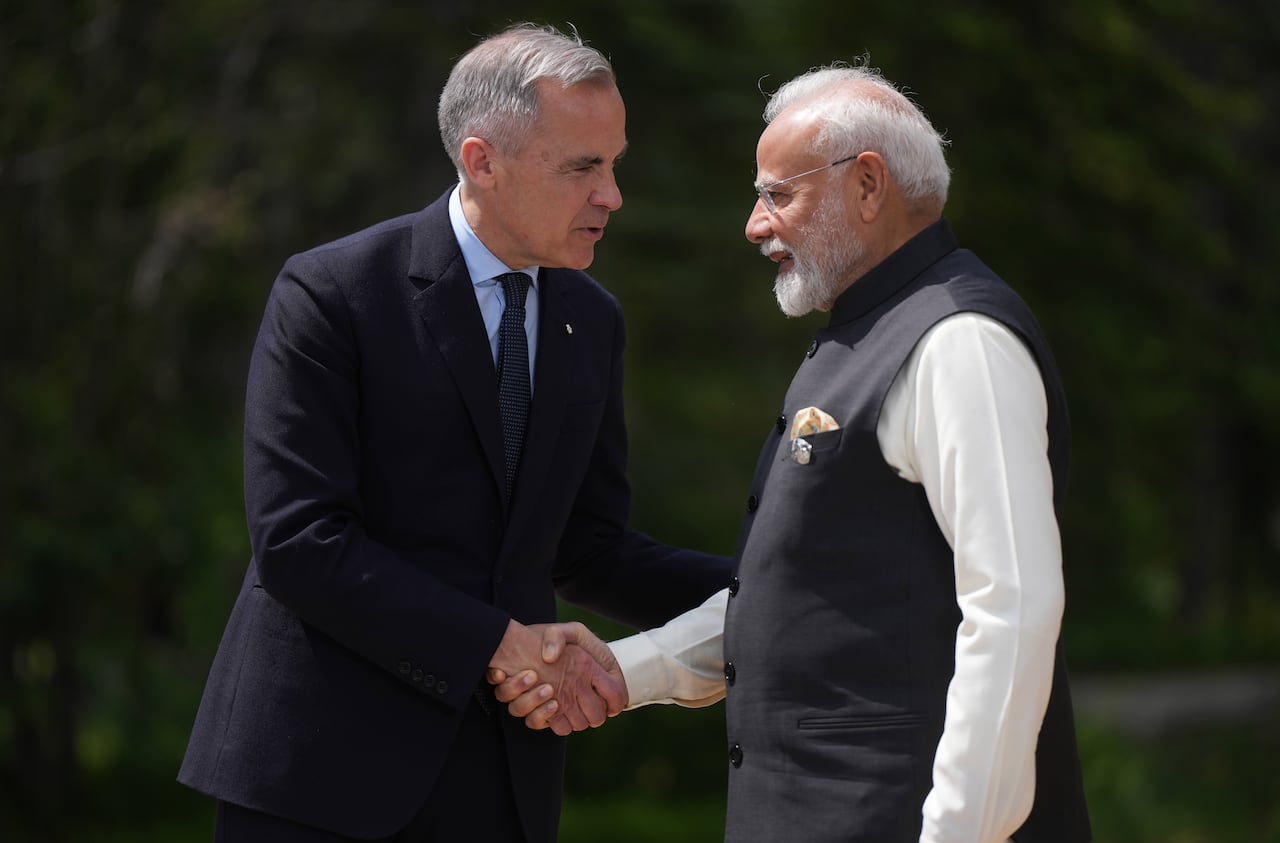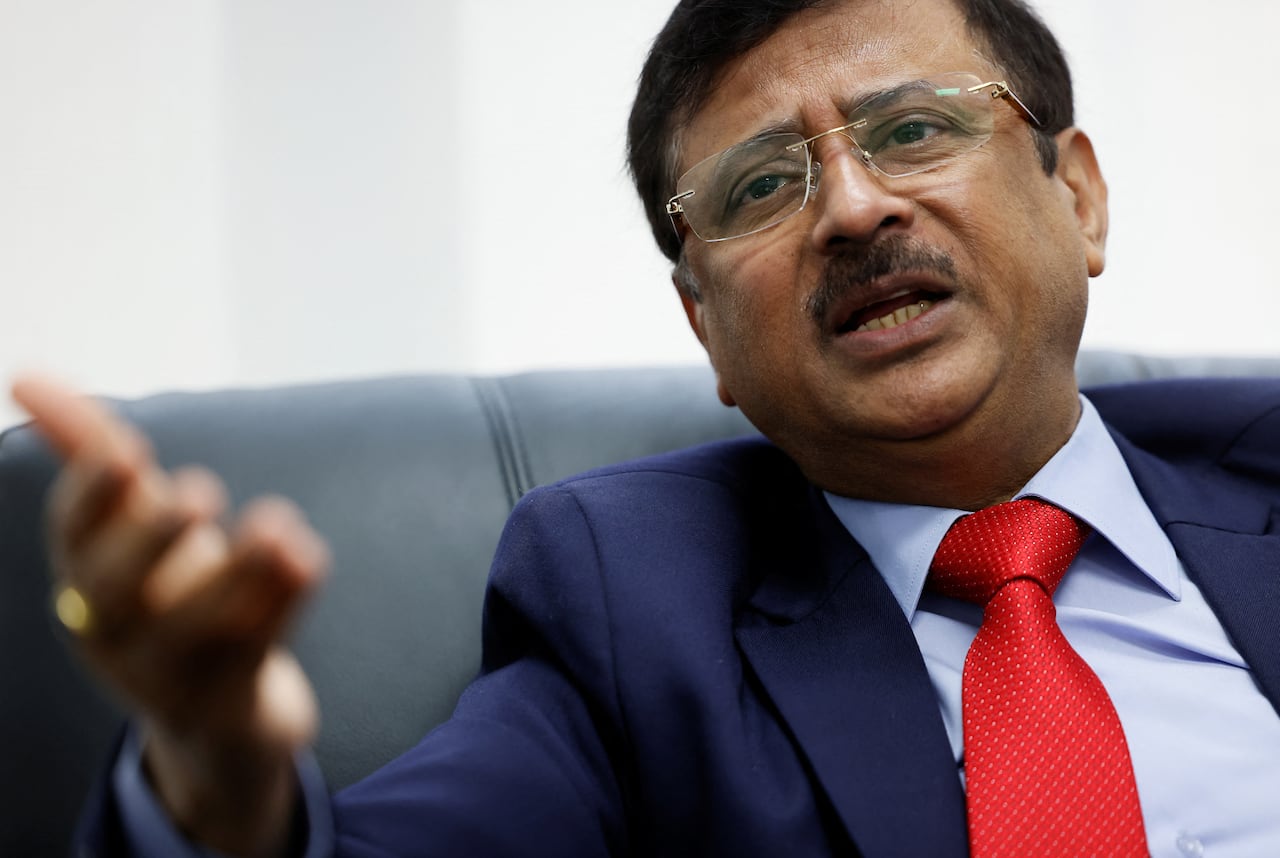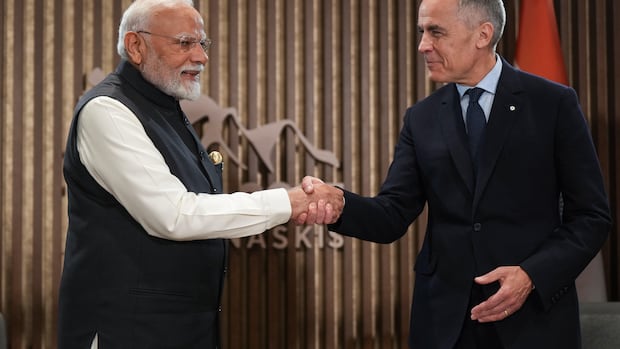After two years of navigating a bitter diplomatic spat over the killing of a Sikh activist on Canadian soil, India and Canada have tentatively sketched out a road map to rebuild their strained relationship.
That’s the end result of a two-day visit to New Delhi and Mumbai, one which Canadian Foreign Minister Anita Anand has called a success.
“[We’re] elevating our relationship,” she told CBC News during an interview in Mumbai.
“Now we’re moving forward from September-October 2023,” Anand added, referencing the time when the diplomatic ties between the two countries fully derailed.
The relationship broke down after then-Canadian prime minister Justin Trudeau accused Indian government agents of having a role in the killing of Sikh activist Hardeep Singh Nijjar outside a gurdwara, a Sikh place of worship, in Surrey, B.C., in 2023.
India dismissed the allegations as absurd and politically motivated. The ties further devolved a year later, as each country expelled the other’s top diplomats.
Canadian authorities are still investigating alleged transnational repression — the targeted silencing of a diaspora community — focusing on Sikhs in Canada, with four Indian nationals facing charges related to the Nijjar homicide.
Tension between Canada and India has not evaporated; instead, a more pragmatic approach has emerged in the rebuilding of the relationship.
Both countries are reeling from punishing tariffs imposed by the United States and are trying to diversify their trade options.
“We are in a moment where economic diplomacy, pragmatism, is of crucial importance,” Anand said.

Also important, from India’s point of view, was Canada’s election earlier this year that saw Mark Carney take over as prime minister.
That produced a slight thaw when Carney extended an invitation to India’s Prime Minister Narendra Modi to attend the G7 meeting in Kananaskis, Alta., last June.
The countries have both appointed new high commissioners, and Anand confirmed India has agreed to readmit the same number of Canadian diplomats it once had in the country.
A positive tone in their statement
The trip, Anand’s first to India as foreign minister, started with a meeting with Modi and ended Tuesday after multiple conversations with business leaders and investors based in Mumbai.
According to India’s External Affairs Minister Subrahmanyam Jaishankar, Modi spoke to Anand on Monday about India’s “vision of co-operation [with Canada] and how best to realize it.”
New Delhi would like to move the diplomatic relationship forward “with a positive mindset,” Jaishankar added, noting that bilateral relations between the two countries have been “steadily progressing in the last few months.”
Vina Nadjibulla, vice-president of the Asia Pacific Foundation of Canada, describes the appointment of new high commissioners as a necessary ‘political reset’ to ease tensions between Canada and India. She notes that both countries are reassessing their reliance on the U.S. amid President Donald Trump’s trade war.
That positivity can be glimpsed in the ministers’ joint statement, with phrases like “renewing momentum,” “rebuilding trust” and “deepening co-operation” peppering the document released after the meeting
The word “trade” appears eight times, as officials agreed to work together on areas that include agriculture, critical minerals, and AI technology — a clear sign the economy is front of mind for both countries.
It’s the first high-level statement the two countries have agreed to release jointly in seven years.
But something is missing
What’s absent from the statement, however, is the issue of transnational repression, with only a passing and oblique reference to respecting “each other’s concerns and sensitivities.”
Anand said she repeatedly brought up Canada’s concerns over public safety in her meetings with Indian officials and that the words in the statement were carefully chosen.
“At every stage, in every conversation, I made sure to bring up many topics within the public safety mould,” the minister told CBC News. “Including transnational repression, including public safety, including an independent RCMP investigation, including outlawing the Bishnoi gang.”
Ottawa recently listed the Bishnoi gang as a terrorist entity, and Canadian police have alleged that agents of the Indian government were working with members of the group to target pro-Khalistan activists within the Sikh diaspora. New Delhi has denied the claim.
For India’s former top diplomat in Canada, Sanjay Kumar Verma, who left swiftly in 2024 when he was expelled alongside his colleagues, the signal of slowly rebuilding ties is a “deliberate calibration” that’s “a departure from public megaphone diplomacy practised by Ottawa earlier.”

Writing in digital news outlet India Narrative, Verma said the message from the two-day visit was that “differences will be managed, not magnified; engagement will be structured, not sporadic.”
The visit has angered Sikhs For Justice, the group that Nijjar used to lead, which is still organizing.
The group released a statement calling out “Anand’s silence” and for prioritizing trade and diplomatic relations “over the safety and sovereignty of Canadians.”
To that effect, Sikhs For Justice has filed a formal request for investigation with Canada’s conflict of interest and ethics commissioner against Anand, alleging a breach of her oath of office.
The group is also organizing another referendum on Punjabi independence from India next month — an event that’s likely to infuriate the Modi government.
Others in Canada’s business community applauded the tentative rapprochement.
“We are pleased to see that things are picking up where we left off two years ago,” said Goldy Hyder, president and CEO of the Business Council of Canada.
“As Canada pursues its diversification strategy, trade and two-way investments opportunities with India must be seized.”
www.cbc.ca (Article Sourced Website)
#ANALYSIS #Pragmatism #tariffs #helped #thaw #Canada #Indias #strained #relationship #CBC #News

